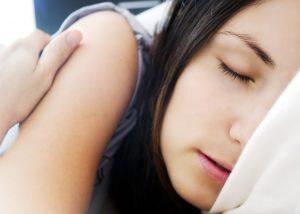
Ask anyone to describe the average sleep apnea sufferer, and they will probably describe someone male, ageing and overweight. In some ways, this is a reasonable response. A recent study showed that around six percent of women experience moderate or severe sleep apnea compared to 13 percent of men. It is also well-established that older people are more susceptible to developing sleep apnea.
However, it is important to remember that sleep apnea sufferers come in all sizes, races, ages, and genders. Women, in particular, are an underdiagnosed group when it comes to sleep apnea, with many suffering a variety of symptoms for many years without any medical assistance.
Why does sleep apnea go underdiagnosed in women?
One of the reasons that sleep apnea is often missed in women is that they tend to present with symptoms that are not considered to align with classic sleep apnea. Furthermore, a man who shares a bed with a woman with sleep apnea is much less likely to mention it compared with the other way around. Doctors are also less likely to ask women whether they have related symptoms.
Even women who do not snore particularly heavily or often may have sleep apnea. They may present with a range of other symptoms including:
– Restless legs
– Insomnia
– Fatigue
– Depression
– Morning headaches
– Difficulties concentrating
– Heartburn during the night
– Fibromyalgia
– Night sweats
– Dry mouth on waking
– Stress and feeling overwhelmed
– Frequent urination during the night
– Obesity
– High blood pressure
Women who are going through menopause are thought to be between three and four times more likely to experience sleep apnea compared to those who are premenopausal. Women who are in the second or third trimester of pregnancy are also at a higher risk of developing the condition.
According to the National Sleep Foundation, women with sleep apnea are often misdiagnosed as having chronic disorders such as anemia, diabetes, insomnia, irritable bowel syndrome (IBS), and hypothyroidism. Many are also dismissed as simply having hypochondria. This means that many women with sleep apnea are treated with medications that are unlikely to help such as pain medications and antidepressants.
If you are a woman who experiences any combination of the symptoms described above, it is worth asking your doctor to investigate the possibility of sleep apnea.
Photo: Angel Sleeps by planetchopstick licensed under Creative commons 6




